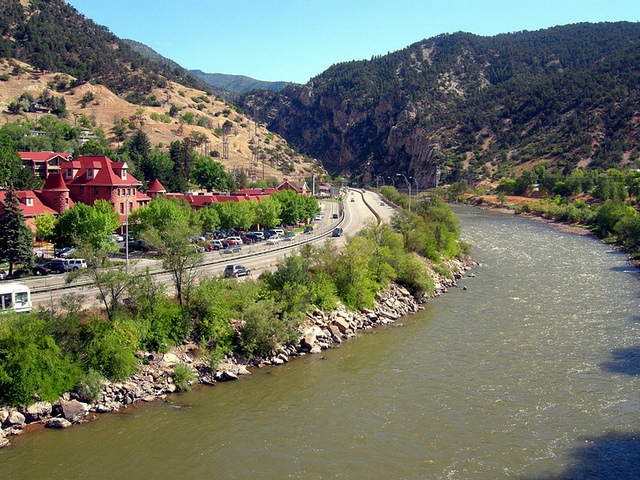
With a state population expected to reach 6 million by 2020 and 10 million by 2050, it’s no secret that Colorado needs more water.
The state is poised to complete its first state water plan, with the completed plan to be sent to the governor’s desk in December. Business, agriculture and water leaders called for the final plan—and how it’s put into action—to include innovative and measurable outcomes to ensure the state can meet its impending water demands at the Denver Metro Chamber of Commerce’s State of Water today.
“There is a real cost to doing nothing when it comes to water,” President and CEO Kelly Brough told the 250 people in attendance. “I can’t tell you what it is, but I’ll tell you this: We cannot afford it.”

Brough and a panel that included former Colorado Agriculture Commissioner Don Ament, Colorado Water Conservation Board Director James Eklund, Colorado River District General Manager Eric Kunh, Denver Water CEO and manager Jim Lochhead and Brighton-based Sakata Farms owner Robert Sakata share the kinds of innovation they’re seeing—and where they’d like to see more, from collaboration and leadership to technology and reuse.
“We have to be using the innovative community that is at our disposal,” Eklund said.
Green infrastructure to capture and reuse water, more storage—and a streamlined process to get those projects approved—and more flexibility among agriculture producers and municipal water utilities to share water rights should all be part of how the plan is implemented, Brough said.
In particular, Brough talked about a flexible way for agriculture producers to maintain their water rights, but sell a portion of them when needed—avoiding a buy and dry situation where all their right is sold and the land isn’t farmed at all.
“That is the only way we can get to a place where we can actually produce more with our current water we have available,” Brough said. “A place where we can create protections for land owners that allow them to be productive when they want to be, yet put water back into the market when it represents an economic advantage for them and do that without risking permanent loss of their water rights.”
Lochhead said he’s hopeful that the plan will ensure vibrant urban areas, agriculture and outdoor recreation can all co-exist.
“It’s not a matter of tradeoffs. I believe we can have it all,” he said. “But ultimately it’s going to require leadership.”
The Chamber hosted the event in partnership with the Colorado Competitive Council, Colorado Foundation for Water Education, Colorado Water Congress and Denver Water.
Sakata said being part of these conversations has heartened him to hear support for agriculture.
“In order to feed the world, we’re going to need water to do that,” Sakata said.
More people have been involved in the conversations through basin roundtable meetings and events like State of Water, said former Colorado Agriculture Commissioner Don Ament.
“We have a bigger audience now,” he said.
And it creates accountability to act.
“The power of this plan will rest with the people in this room … in terms of holding everyone accountable,” Kuhn said.
Eklund, whose team will send the plan to the governor, agreed.
“This is our moment to move with some momentum.”
Sara Crocker is the communications manager for the Denver Metro Chamber of Commerce.
